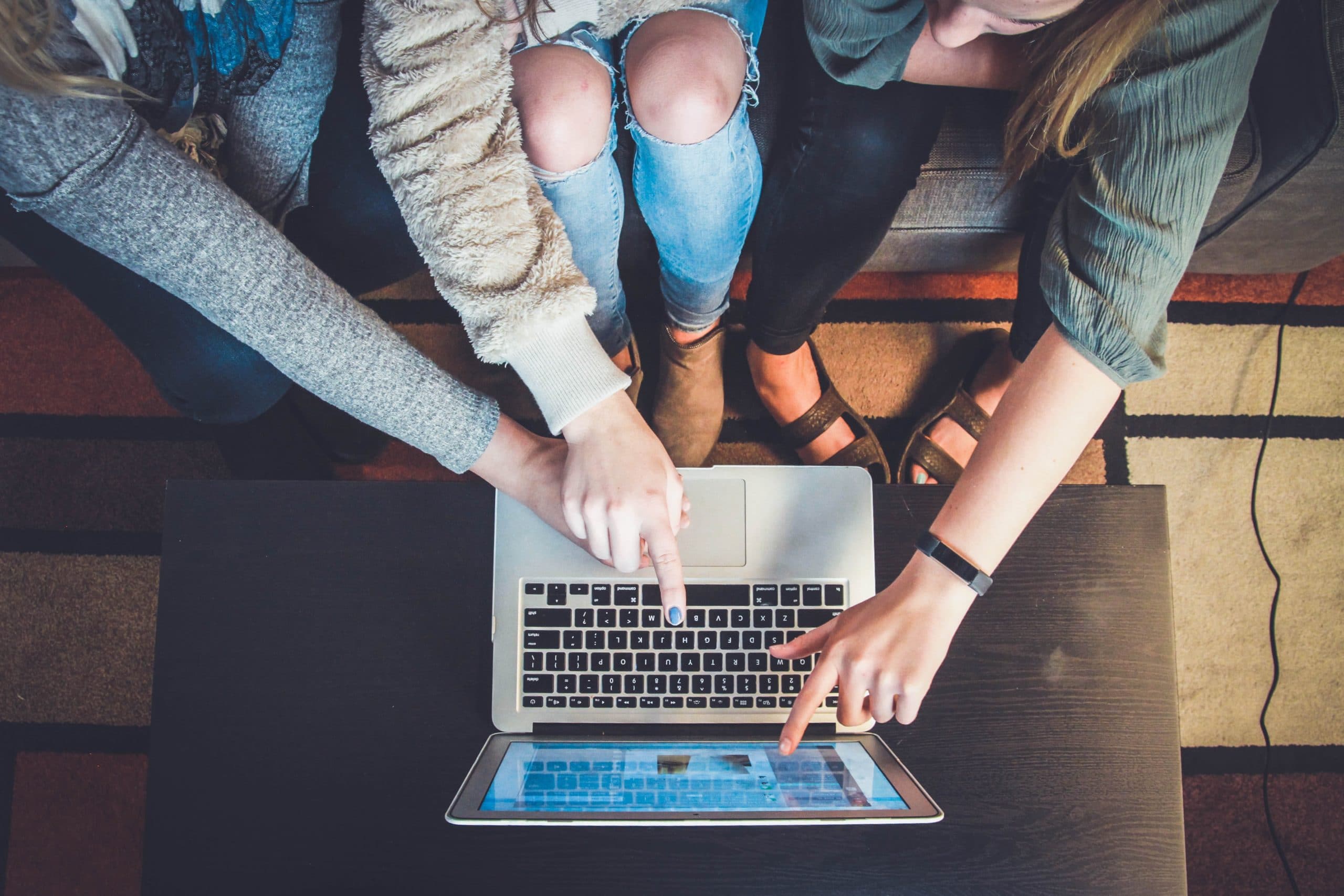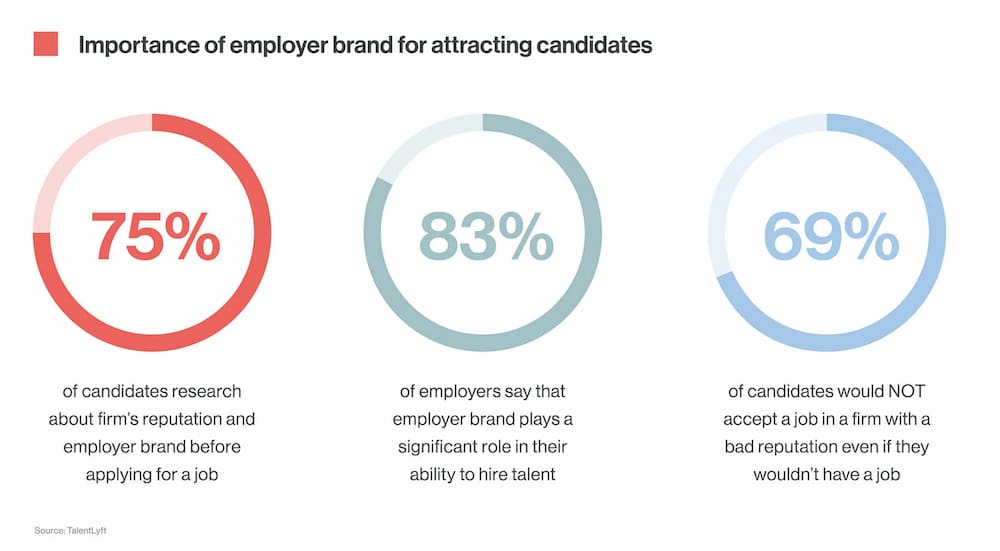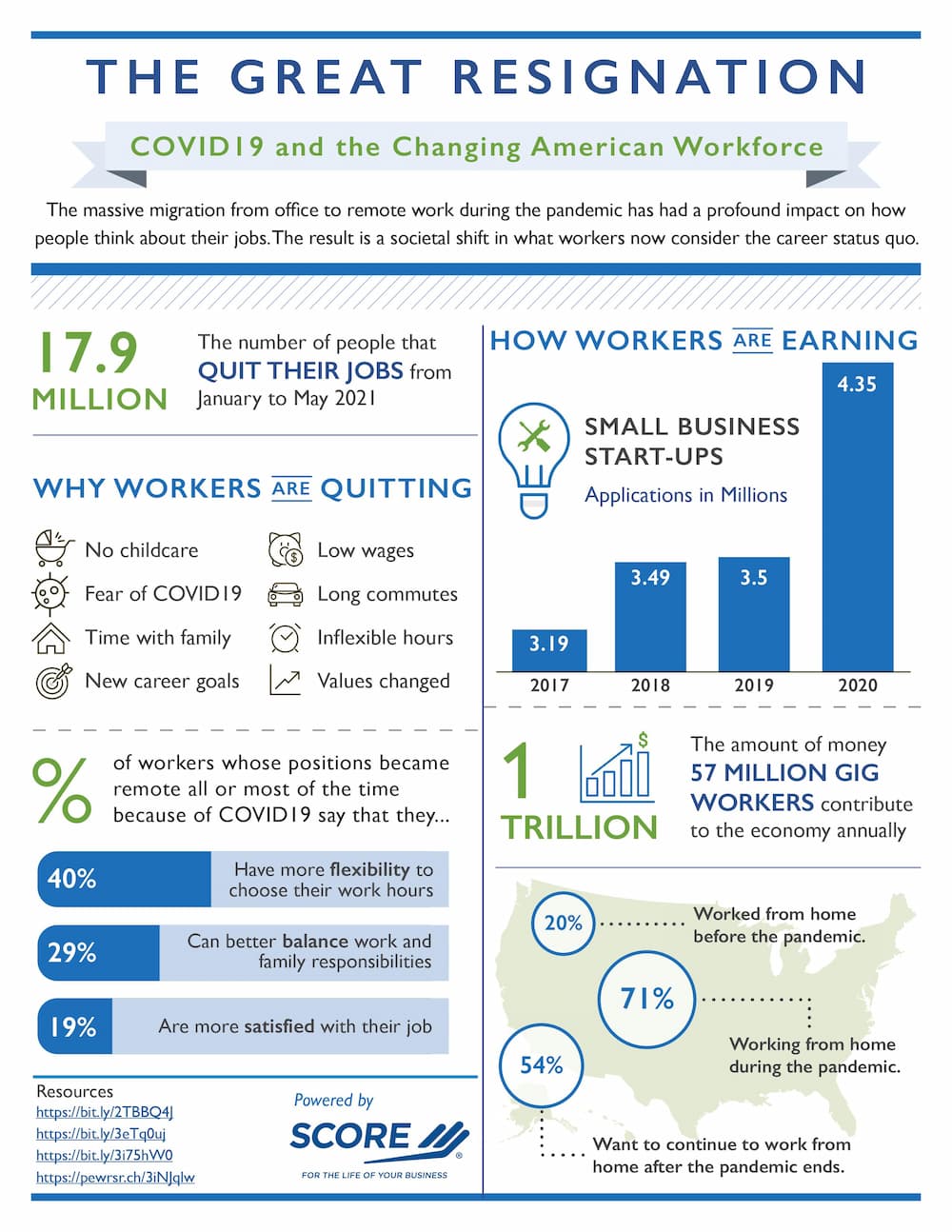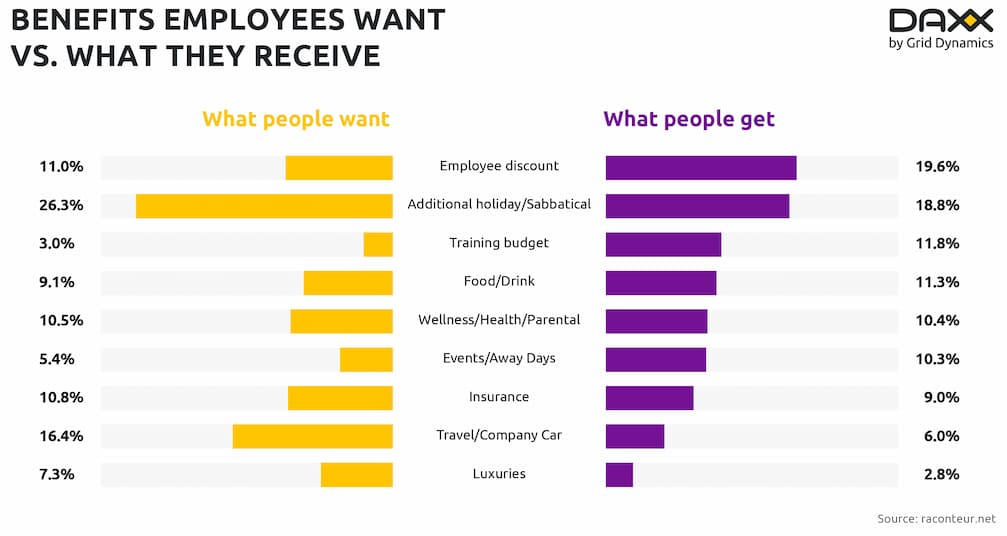The Great Resignation is posing a serious problem for many retail establishments. An ever-increasing number of workers across all industries are resigning from their jobs and leaving to pursue other employment. With workers quitting in record numbers, many employers, particularly retail employers, are looking for new and better ways to keep employees in their roles.
For your retail establishment, leveraging your brand is critical to keep the talent you need as the Great Resignation continues.

What is an employer brand?
Your employer brand is who you are as an employer. The branding process is about communicating your ideal brand identity to the outside world so that candidates and employees get an authentic idea of who the company is, what you stand for, and what it is like to work for you.
As a retail establishment, you likely have a clear brand to present to your customers. The brand you present to current and potential employees is equally important, particularly in light of the Great Resignation. Your employer brand covers the details of the employee experience with your organization, including:
- What it’s like to work for you
- What value you offer to your employees (I.e., why they should work for you)
- The support and benefits you provide for your employees
In addition, your employer brand may include elements of your company reputation and what you have to offer consumers. Many of today’s employees are highly interested in working for a brand that offers value to customers and makes them feel like they are part of something.
What are the benefits of good employer branding?
Good employer branding can make a huge difference in your ability to both attract and retain quality retail talent. Your brand tells employees—both current and potential—who you are and why they want to work with you or remain with your company.
1. Employer branding can help attract quality candidates.
With record numbers of jobs open across many industries, candidates have their choice of where they want to apply and who they want to work for. However, with good employer branding, you can attract top talent who is interested in working specifically for your business.
Source (papirfly.com)
2. Focusing on employer branding can help encourage employees to stay with your organization.
When you focus on providing a high-quality employee experience, you can encourage employees to stay in their positions and commit to your brand instead of looking elsewhere for employment.
Employees look for jobs for a variety of reasons, but often, it boils down to discontentment with their current role: Poor management, lack of attention to their needs, or inadequate payment for their work.
By focusing on high-quality employer branding, you can provide employees with a great work experience so they are less likely to want to leave.
3. Strong employer branding may benefit your business’s search for customers.
Customers have become increasingly aware of how businesses treat their employees and the impact that has on them. By focusing on strong employer branding, you may actually draw in more customers or keep your current ones, since those customers will know that you treat your employees well.
4. Employer branding helps you stay engaged with passive candidates
Consistent employer branding can help you to plant the seed in the minds of passive candidates that you are a great place to work. Employer branding storytelling is one of the most effective techniques to convert top talent.
Even if a candidate wasn’t actively seeking a job, learning about the perks and benefits of joining your organization might inspire their interest. After all, there’s been a lot of job switching during the Great Resignation.
The Challenges of Retaining Quality Retail Talent During the Great Resignation
Over the past several years, many people have chosen to leave retail jobs for a variety of reasons.
The Great Resignation hit the retail industry hard—according to CNBC in August 2021, 721,000 retail workers left their jobs out of the 4.3 million workers who left that month. In the midst of the Great Resignation and with the ongoing labor shortage, there are several reasons why it may be more difficult to keep quality retail talent in your business:
1. There are more open jobs than ever.
Jobs continue to come open at record numbers. They are posted in many locations, and employees have their choice of where they want to work.
2. Changing jobs often offers the best chance to get a raise or promotion.
Often, job seekers will transition to a new job to get a much-needed raise, and they may have better odds of securing one in a new position, rather than getting a raise in their current one.
3. Many employees are leaving the retail industry altogether.
After the last two years, many retail employees are tired. They have struggled with difficult customers and policies that don’t seem to consider their needs. As a result, many of them are leaving the retail industry altogether to pursue other dreams and plans.
4. Priorities have shifted in the pandemic.
Many retail workers may have shifted their priorities after the uncertainty of the last few years. They want to be assured that their desire for flexibility in their work-life balance, health protection, and better compensation is being met. Today’s retail talent wants more assurances and protections in the face of the challenges the last few years have presented.
Source (score.org)
Employer Branding Tips for Retail to Retain Talent
While there are several struggles when it comes to retaining the best talent in the retail industry, there are some things you can do to aid in employee retention:
1. Shift your candidate experience to reflect your values.
Do you commit to sustainability? Are you focused on eco-friendly practices in the workplace?
Take a look at your business’s brand as presented to consumers and make sure that your candidates and employees are actually having that experience with your brand.
Many retail workers are excited to work for a specific brand when they first sign up, only to discover later that the experience is not at all what they’d expected. By ensuring that your employee experience aligns with your branding, you’re more likely to provide a better experience for everyone involved.
2. Choose candidates who are a good fit for your brand.
When you’re hiring, look for candidates who align with your brand values and who are eager to engage with your brand. A candidate who has no interest in your products, for example, might not be a good long-term fit for the brand as a whole.
On the other hand, a candidate who knows your products well, aligns with your brand values, and is ready to dive in and represent your brand long-term, is a much better fit. You may also want to consider whether candidates align with your values and what their long-term goals look like.
3. Encourage employee referrals.
Encourage employees to refer friends, family members, or connections that they know will be a good fit for the business. Your employees may already have had the chance to get to know others who might be a good fit for your business and your brand.
When you take your employees’ referrals into account, you can often find those employees and get a better feel for whether they are the right choice for your next hire.
4. Evaluate your employee experience.
Experience matters to your employees on a number of levels. With many workers spending eight hours or more per day, five plus days a week, at work, work can quickly become one of the most important areas of their lives. Take a look at your employee experience. Consider:
Compensation
Are you offering fair compensation compared to other retail establishments in the area?
Benefits
What benefits do you offer to your employees? Do they align with your values and expectations? For example, if you focus on diversity and inclusion, but fail to provide adequate health insurance, it could quickly turn candidates away from your brand, and lead employees to leave more quickly.
Atmosphere
Do you have a quality atmosphere where employees can grow? Is your atmosphere generally positive? Do you support your employees, particularly in their work with customers? If you want employees to have a positive overall experience, make sure you’re creating an atmosphere that is positive and supportive.
Training and advancement opportunities
Many employees are looking for ways to advance in their careers—not just with your business, but in the future. By providing quality training and advancement opportunities, you can keep them, and their skills, with your brand.
5. Consider what your employees really want.
A break room filled with your products, free samples, or deep discounts on merchandise may appeal to some employees, but it also may not be enough to keep employees at your particular business. Or even to keep them in retail at all.
Today’s employees are looking for a high-quality experience where they can grow. They want a brand they can stand behind. Most importantly, they want adequate compensation for their work.
Make sure you talk to employees about what they really want and allocate the budget accordingly. Adding another video game system to the break room when employees only get one, unpaid, 30-minute break per day could be seen as tone-deaf, particularly when employees have other things they genuinely need.
Source (daxx.com)
6. Be prepared to provide modifications and support for employees who need it.
One of the key elements of an employer brand is how they really treat their employees, and retail establishments are notorious for being inflexible when it comes to employee needs.
Carefully consider what your employees need in order to excel. Your employees may benefit from some scheduling flexibility, support for illness and injuries that will allow them to return to the workplace more easily, or a sick leave policy that makes it possible for them to stay home and recover when ill.
If you can provide your employees with those supports when they need them, they’ll be more likely to stick with your business long-term instead of resigning to look elsewhere.
7. Check out your competition.
In order to retain talent, you need to know what you’re up against. Who are your employees leaving your company for? Or, who might candidates choose over your brand? Make sure that once you have secured the top talent they aren’t tempted to complete a rivals Employment Application Form
Identify key competitors to measure yourself against. Consider the following questions:
- What influences how applicants/employees see you versus your competitors?
- How do your perks and benefits compare to the competition?
- How are you ranking on online review sites compared to your competitors?
Taking the time to carefully audit how your employer brand stacks up against your key competitors can provide clarity on which elements of your branding you need to address first. In the retail arena this could include: Flexibility in hours, wages, training/career advancement opportunities, and more.
8. Keep a pulse on reasons why your employees are leaving you.
Unfortunately, despite our best efforts, employee churn is unavoidable. However, that doesn’t mean you can’t dig into the reasons why your top talent is leaving. Learning why some talent leaves will help you to figure out how to make your current talent stay.
Exit interviews after an employee gives notice are one way to discover the reasons why your company might be struggling with retaining retail talent. If exit interviews are too time intensive, other solutions might be to allow anonymous feedback options or checking out review sites like Glassdoor for common feedback.
Of course, feedback from one or two employees might not tell the whole story, so it’s best to try to find patterns that emerge. From these patterns, you can look for ways to improve your company culture and retain your talent.
For example, consider all of the brands which have decided to stay closed on Thanksgiving. This is a clear example of employer branding; by signaling to the world that these companies care about their employees’ ability to spend time with their families.
This certainly might hurt their bottom line in the short run, but definitely might help with employee retention. Companies have to weigh the pros and cons of such actions to make decisions that benefit both their business and their employees.
It’s Time to Improve Your Employer Brand
Your employer brand is just as important as your consumer brand, if not more so. By providing a quality working environment for your employees, you can retain your top performers and attract more employees who are genuinely committed to your brand and to working with you.
Are you ready to get started? Contact us today for more information about how you can improve your branding efforts.








